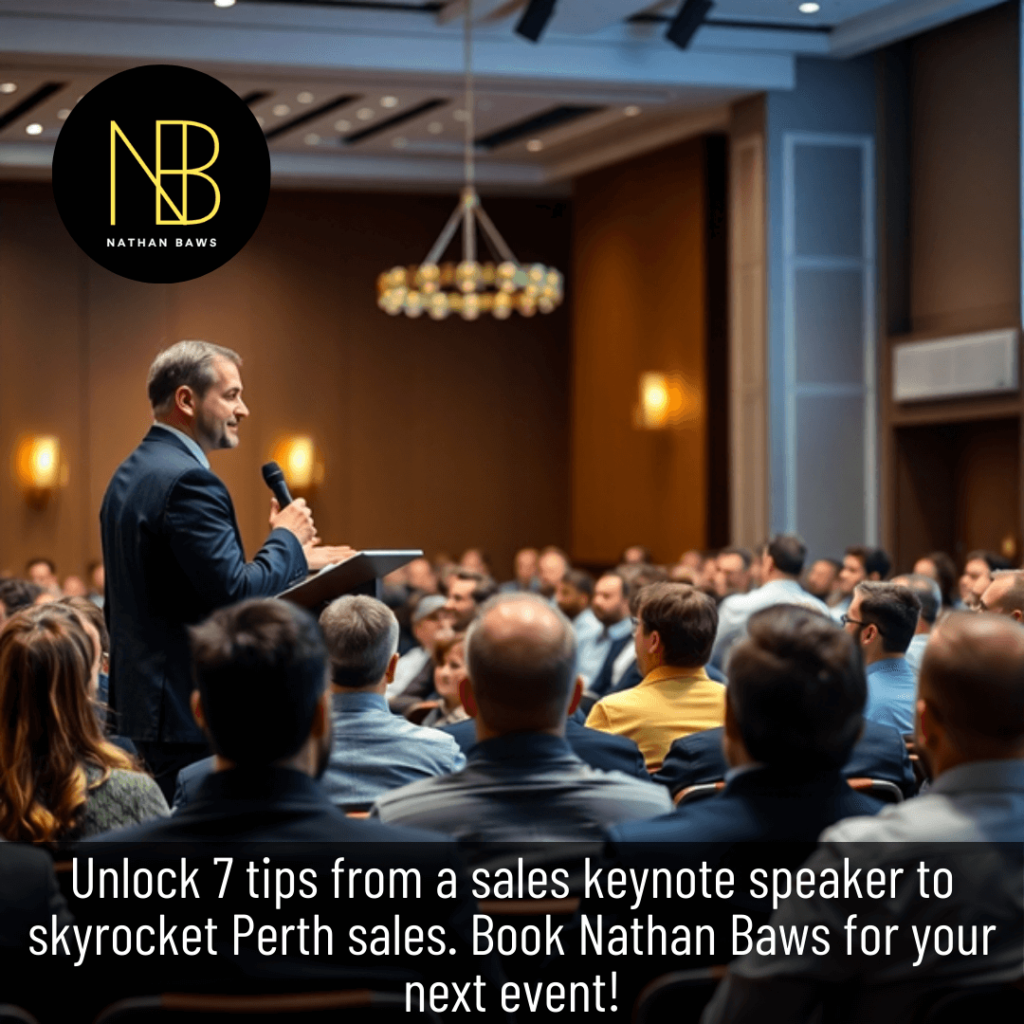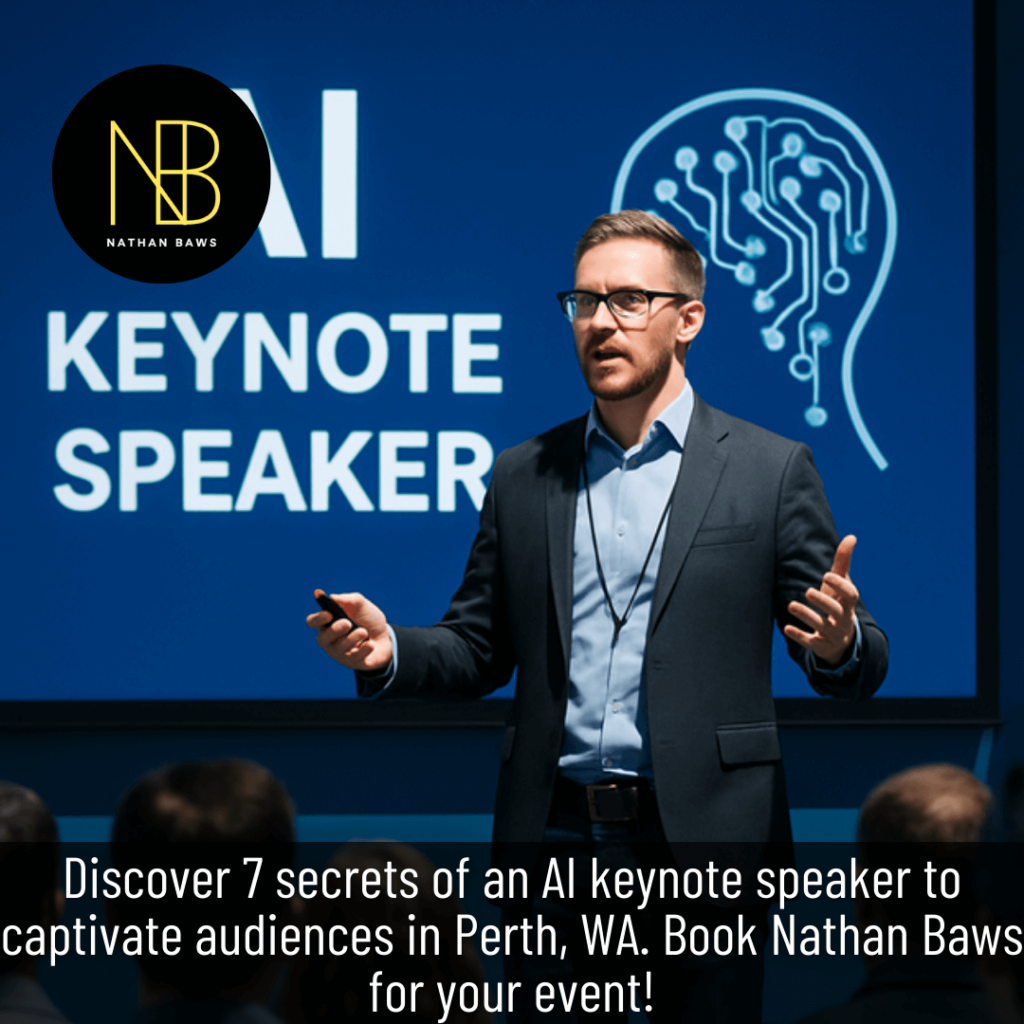7 Essential Tips to Book a Keynote Speaker and Make Your Perth Event a Ripper
Introduction G’day, Perth! Planning a conference or workshop and want to book a keynote speaker who’ll light up the room like a sunset over Cottesloe Beach? The right speaker can turn your event into the talk of Western Australia, inspiring everyone from Freo’s café owners to Subiaco’s suits. Here at Nathan Baws, we’ve been wowing Perth crowds with talks that spark ideas, bring laughs, and deliver results. This article shares seven essential tips to book a keynote speaker who’ll make your event a ripper. Grab a flat white from Northbridge, and let’s get cracking! Key Takeaways 1. Look for a Storyteller When you book a keynote speaker, go for someone who spins yarns that grab your audience like a cold one on a hot Perth day. Stories make ideas stick and keep your crowd engaged. Why Stories Are Gold A good tale is magic. At a Perth business expo, I shared how a local startup turned a slow month into a sell-out with a heartfelt pitch. The crowd was hooked—it felt real. Stories turn dry concepts into something memorable. Make It Perth-Centric Perth folks love their city. A speaker who mentions Freo’s markets or a Swan River sunset gets instant cred. I once told a story about a Leederville shop owner who boosted sales with Instagram, and the room lit up. Keep It Tight Don’t let ‘em ramble. A great story is short, like a quick yarn at the pub, with a clear point. When you book a keynote speaker, ensure they tie their tales to your event’s goals. Check Their Story Stash Ask for examples of stories they’ve used. A top speaker has a knack for narratives that resonate. At Nathan Baws, we craft stories that make Perth audiences lean in. 2. Find Someone Who Gets Perth Perth’s got a unique blend of beachy calm and go-getter hustle. To book a keynote speaker who resonates, pick someone who understands our city’s heart and soul. Know the Locals Before a Subiaco gig, I chatted with biz owners. They’re proud of Perth but hungry for growth. A speaker who nods to our love for a coffee run or a Rotto weekend connects instantly. Skip the Buzzwords Perth audiences hate jargon. I saw a speaker flop with talk of “paradigm shifts.” Mate, just tell us how to grow! When you book a keynote speaker, go for plain talkers who keep it real. Show They Get It At a Claremont event, I joked about the eternal hunt for a CBD parking spot. The crowd roared—they knew I got their world. A speaker who shows they know Perth wins trust fast. Why Local Vibes Matter A speaker who misses Perth’s pulse might bore your crowd. At Nathan Baws, we’re WA locals who ensure every talk feels tailor-made for Perth. 3. Choose Simplicity One big reason to book a keynote speaker is their ability to make complex ideas dead simple. Whether it’s marketing or leadership, they should break it down so anyone can use it. Ditch the Gibberish I’ve seen eyes glaze over when speakers drone on about “metrics” or “funnels.” I explain branding like picking bait for fishing—get it right, and customers bite. Simple’s the way to go. Use Real-Life Wins A Northbridge café I worked with didn’t get “digital marketing.” I showed ‘em how daily Insta posts doubled their walk-ins. Real examples make tricky stuff clear and relatable. Offer Doable Tips Tips should be easy to act on. I tell folks to start with one social post or a quick customer email. When you book a keynote speaker, ensure they give your crowd steps they can take today. Simplicity’s Power Perth audiences, from startups to corporates, want ideas they can use without a manual. A speaker who simplifies ensures everyone leaves with something practical. 4. Seek a Speaker Who Inspires When you book a keynote speaker, you want someone who doesn’t just inform—they spark action. Your audience should leave ready to tackle their next big thing. Paint a Bold Vision At a Fremantle conference, I described how a local gym used TikTok to pack classes. The picture of a buzzing studio got the crowd itching to try it, phones already out. Bring the Buzz No one wants a dull speaker. I bounce around, crack a quip about Perth’s parking woes, and keep the vibe high. Energy’s contagious—your crowd will feed off it. Push for Action End with a clear next step. I tell audiences to pick one idea—like posting a customer story—and do it within a week. A great speaker leaves your event with momentum. Inspiration’s Impact An inspired audience doesn’t just clap—they go back and make things happen. At Nathan Baws, we’ve seen our talks lead to real results, from sales boosts to new ideas. 5. Demand a Dose of Humour Humour’s a must when you book a keynote speaker. A well-timed laugh keeps your audience engaged and makes your message stick like a good feed at a Freo pub. Why Laughs Win A chuckle breaks the ice. At a Leederville gig, I joked about my dodgy attempt at a viral video. The crowd roared, and they listened closer to my tips. Humour builds a bond. Keep It Light No need for a comedy show. A quip about Perth’s avo toast obsession or CBD parking does the trick. It shows the speaker’s human, not a robot spitting slides. Tie It to the Point Humour should serve the message. I joked about a client’s messy website, then showed how a clean design lifted sales. The laugh made the lesson stick. Humour’s Lasting Effect A speaker who makes your crowd smile creates a vibe that lingers. It turns your event into a memorable win. 6. Prioritise Local Connection Perth’s culture is a goldmine. When you book a keynote speaker, choose someone who weaves in local pride to connect with your audience. Drop Local Gems Mention Scarborough Beach or a cold one by the Swan, and you’re relatable. I used a Fremantle market stall









